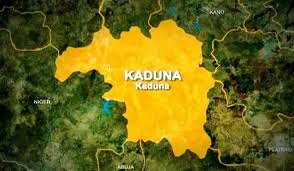Professors from Southern Kaduna, organized under the Forum of Southern Kaduna Professors (FOSKAP), have strongly condemned the opposition to the establishment of the Federal University of Applied Sciences, Kachia. The move to create a university in the region has stirred significant debate, with critics citing the already overstretched financial resources allocated to higher education in Nigeria as their primary concern. However, the Southern Kaduna academic community has rejected these arguments, asserting that they undermine the region’s right to equal educational opportunities.
FOSKAP Chairman, Professor John Gambo Laah, led the charge in defending the proposed university, specifically responding to a recent editorial in a national newspaper that questioned the feasibility of establishing the Kachia institution due to funding concerns. Prof. Laah, a respected academic figure, dismissed the editorial’s stance as unfounded, suggesting it overlooked the broader picture of Nigeria’s higher education system, which, according to him, is grappling with funding issues universally. He argued that claiming the Kachia university project would worsen these problems is shortsighted and fails to acknowledge the long-term benefits of expanding educational opportunities.
“Every university in this country, whether public or private, is battling funding challenges,” Laah remarked. “We cannot stop the development of education in the nation simply because of financial constraints. That’s not a sustainable solution to our educational crisis.”
This response comes amid growing concerns that the current higher education framework in Nigeria is not sufficiently equipped to cater to the increasing number of students. Despite the expansion of universities in the past decade, the country still grapples with an overwhelming student-to-staff ratio. According to Prof. Laah, the establishment of the Federal University of Applied Sciences would provide much-needed relief by offering increased access to higher education in a region that remains severely underserved.
Laah highlighted that Southern Kaduna, historically neglected in terms of educational infrastructure, is one of the areas where the demand for tertiary education far exceeds the available opportunities. The region has long struggled with insufficient schools and educational resources, which has contributed to both low literacy rates and fewer opportunities for youth to pursue advanced education. For Laah and his colleagues, this is the root cause of their advocacy for the new university.
In addressing the critics’ assertion that existing universities are underutilized, Laah emphasized the continually growing demand for higher education. The increase in the number of universities in Nigeria over the last decade has barely kept pace with the rising student population. For example, while some universities are facing overcrowding, others in more developed regions remain underused. Thus, he argued, opening new institutions is not only necessary but urgent.
“We should look beyond the narrow view that some institutions are under-utilized. The rapid increase in university enrollment across the country shows an undeniable need for expansion in tertiary education,” he stated. “The idea that we should halt the creation of new institutions because a few others are not yet full is illogical and short-sighted.”
Prof. Laah also expressed concern over what he views as a broader issue of educational discrimination. He pointed out that regions like Southern Kaduna—where opportunities for higher education are already limited—should not be penalized further due to financial challenges. He found it particularly disheartening that critics of the Kachia university proposal seemed to suggest that areas with fewer institutions should continue to bear the brunt of Nigeria’s educational deficits.
“This proposal is not just about Kachia; it’s about giving the people of Southern Kaduna the opportunity to access higher education without needing to travel to far-flung regions or face overcrowded campuses elsewhere. It’s about fairness,” Laah remarked.
Southern Kaduna’s exclusion from educational advancements, he warned, reflects a deeper inequality in the distribution of Nigeria’s educational resources. As part of his broader message, Laah also critiqued the motives of those opposing the Kachia university, suggesting that they may be driven by personal or political agendas rather than a genuine concern for the state of Nigeria’s higher education system.
While Laah did not name specific groups or individuals, he called on Nigerians to look critically at the long-standing challenges facing Southern Kaduna and to approach the university proposal with an open mind. He urged Nigerians to recognize that the region’s educational needs are just as valid as those in other parts of the country, and neglecting those needs out of concern for broader financial issues would perpetuate inequality.
The FOSKAP chairman’s statements underscore the increasing urgency for southern Kaduna to be better represented in national educational policy, especially at the tertiary level. His words strike a chord with many local residents, whose limited access to quality education has stunted economic and social mobility in the region.
The debate over the establishment of the Federal University of Applied Sciences, Kachia, is part of a wider discussion on educational equity in Nigeria. For many like Prof. Laah and the professors of FOSKAP, it represents a critical step toward addressing the imbalance in Nigeria’s educational infrastructure.
They see the Kachia university as a long-awaited opportunity to both alleviate overcrowding in existing universities and offer students in the underserved region a fighting chance at academic and professional success, offering hope where it has long been in short supply.




